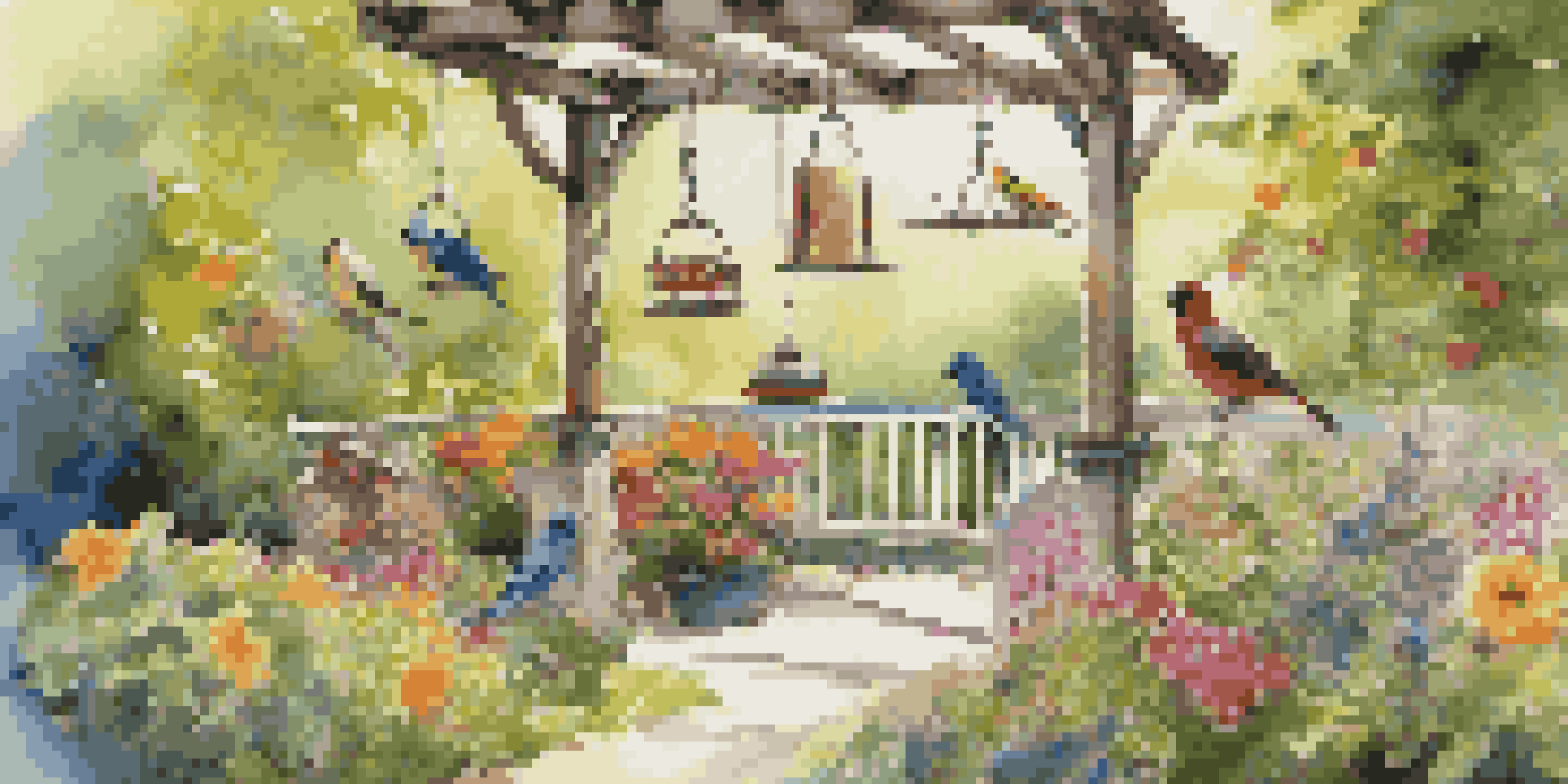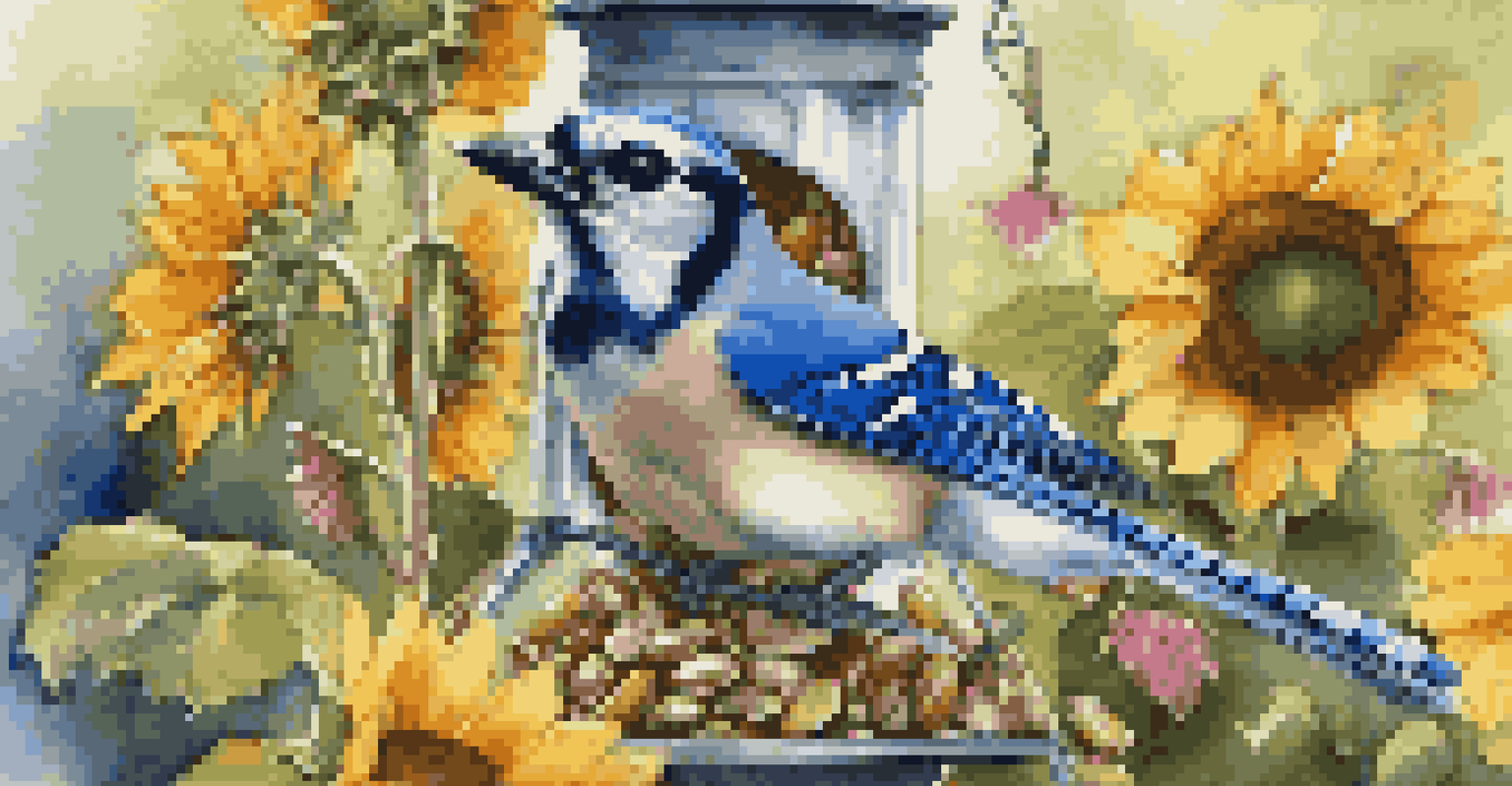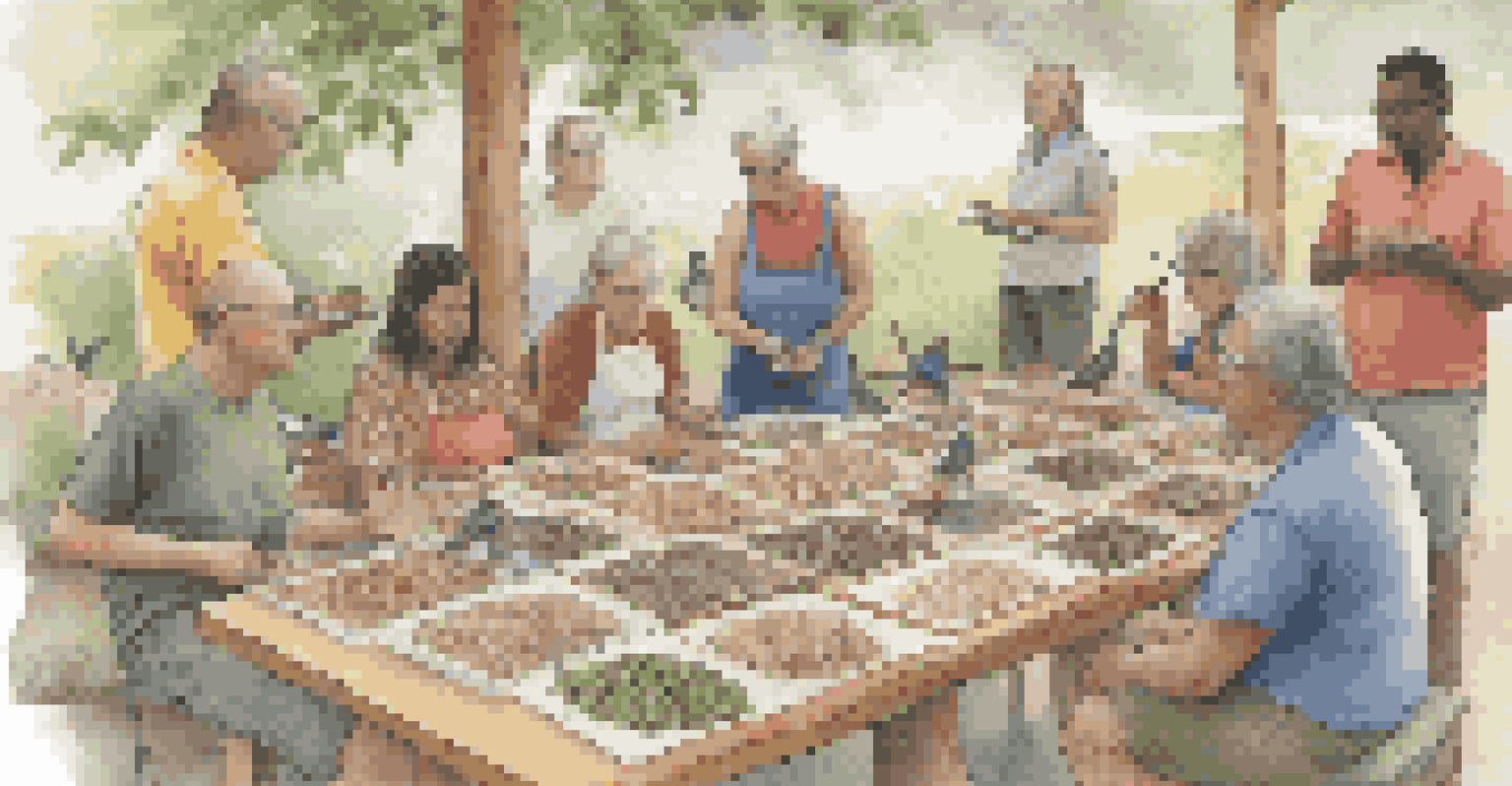Bird Feeding Ethics: Respecting Wildlife and Their Habitats

Understanding Bird Feeding: A Joyful Pursuit
Bird feeding can be a delightful way to connect with nature and observe wildlife. Many people find joy in attracting various bird species to their gardens or balconies. However, it's essential to recognize that this interaction comes with responsibilities that impact the birds and their habitats.
The bird is powered by its own life and by its motivation.
When we provide food, we are essentially changing the natural dynamics of wildlife. Birds may become reliant on feeders, potentially affecting their foraging skills and natural behaviors. This joy should always be balanced with a thoughtful approach that respects their needs and well-being.
By understanding the implications of bird feeding, we can enjoy this pastime while ensuring we do not inadvertently harm the very creatures we admire. It's about creating a harmonious relationship with our feathered friends.
Choosing the Right Feed for Local Birds
Selecting appropriate bird feed is crucial for the health of local birds. Different species have varied dietary needs, and providing the right type of food can make all the difference. For instance, while sunflower seeds are popular among many birds, some prefer suet or nectar.

Additionally, opting for organic or natural feeds can help avoid harmful chemicals that might affect birds or the surrounding environment. It’s also wise to avoid feeding birds bread, as it lacks the necessary nutrients and can lead to health issues.
Ethical Bird Feeding Practices
Understanding the responsibilities of bird feeding helps us create a harmonious relationship with wildlife.
By choosing the right feed, bird enthusiasts can contribute positively to the well-being of their avian visitors. This small effort ensures that we are supporting their health and vitality.
Feeding Wild Birds: Timing and Location Matters
The timing and location of bird feeding are vital considerations for ethical practices. For instance, during harsh winter months, providing food can be a lifesaver for many species. However, feeding outside of these critical times may disrupt their natural foraging instincts.
In every walk with nature, one receives far more than he seeks.
Moreover, placing feeders in locations that are safe from predators helps ensure birds can feed without risk. Positioning feeders near natural cover can provide birds with a quick escape route if needed.
By being mindful of when and where we feed birds, we ensure they can thrive in their natural habitat while still enjoying the benefits of our offerings.
Avoiding Harmful Practices: What Not to Do
While feeding birds can be beneficial, certain practices can be detrimental to their health and safety. For example, using plastic feeders can pose choking hazards or lead to entanglement. Choosing feeders made from safe, durable materials is essential.
Additionally, never feed birds food that is moldy or spoiled, as this can lead to serious health issues. It's also vital to regularly clean feeders to prevent the spread of diseases among birds.
Choosing the Right Bird Feed
Selecting appropriate feed for local birds is crucial for their health and supports their natural dietary needs.
By avoiding harmful practices, we can ensure that our efforts to feed and support birds are genuinely beneficial. This commitment reflects our respect for wildlife and their well-being.
Respecting Natural Habitats: A Balanced Approach
Bird feeding should always be viewed in the context of respecting natural habitats. While it's tempting to create a bird-friendly oasis in our backyards, it's crucial to avoid disrupting local ecosystems. Overfeeding can lead to overcrowding and competition among species, which can upset the balance of nature.
Incorporating native plants into our gardens can provide natural food sources and habitats for birds. This approach not only supports birds but also encourages biodiversity and strengthens the local ecosystem.
By respecting and enhancing natural habitats, we can create a sustainable environment for birds while enjoying their beauty and presence in our lives.
Understanding the Impact of Human Interaction
Human interaction with wildlife can have both positive and negative effects. While feeding birds can help them, it can also lead to dependency, which may hinder their ability to thrive independently. Understanding this balance is key to responsible bird feeding.
Moreover, the presence of humans can alter birds' natural behaviors, such as nesting and foraging. We must be aware of our impact and strive to minimize disturbances in their natural routines.
Respecting Natural Habitats
Incorporating native plants and avoiding overfeeding promotes biodiversity and maintains the balance of local ecosystems.
Recognizing the dual nature of human interaction with birds can guide us toward more ethical feeding practices, ensuring that we support their natural instincts rather than undermine them.
Educating Others: Sharing the Bird Feeding Ethics
One of the best ways to promote ethical bird feeding is by sharing knowledge with others. Whether it's through community workshops or casual conversations, educating friends and family about responsible practices can create a ripple effect. The more people understand the ethics behind bird feeding, the more they are likely to engage in responsible behavior.
Utilizing social media platforms to spread awareness can also be effective. Sharing tips, experiences, and best practices can inspire a broader audience to respect wildlife and their habitats.

By fostering a community around ethical bird feeding, we can collectively contribute to the well-being of our feathered friends and the environments they inhabit.
Conclusion: A Call to Action for Bird Lovers
In conclusion, bird feeding can be a fulfilling and enjoyable experience, but it comes with responsibilities that we must not overlook. By understanding the ethics around bird feeding, choosing the right practices, and respecting natural habitats, we can make a positive impact on wildlife.
Every small action counts, whether it’s selecting the right feed or educating others about ethical practices. Our efforts can help ensure that future generations also enjoy the beauty of birds in their natural habitats.
So, let’s embrace our role as caretakers of the environment and commit to responsible bird feeding. Together, we can create a nurturing space for our avian friends while respecting their wild nature.